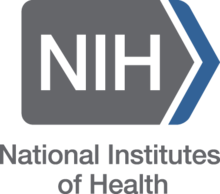Breadcrumb
- Home
- Get Help
- Newsletters
- May 2022 IRB Connection Newsletter
May 2022 IRB Connection Newsletter
Hot Topics and Updates from the IRB and Human Research Protection Program
Good Cause Extension Submission Deadlines for Applicable Clinical Trials
NIH Releases New Policy – Data Management and Sharing
Exempt Research Application: Recorded HawkIRB Training
Write Winning Grant Proposals Seminar and Workshop (2022-2023) – Registration open!
Draft FDA Guidance: Diversity Plans to Improve Enrollment from Underrepresented Racial and Ethnic Populations
Upcoming Conference - Achieving Research Equity and Inclusion: Name It! Act On It! Change It!
Medical Ethics Advisor Newsletter, March and April 2022
In the News
Hot Topics and Updates from the IRB and Human Research Protection Program
By Kelly O’Berry, BS, CIP
On March 9, 2022, the Human Subjects Office gave the triannual lecture to the UI research community about hot topics and updates for human subjects research and the Human Research Protection Program (HRPP). This article provides highlights of the topics covered. We hope you will view the recording in the IRB ICON Course for Researchers (under Additional Topics).

Electronic Consent (eConsent)
The University of Iowa (UI) has a license for DocuSign that can be used for eConsent for non-FDA regulated research. DocuSign has features that are not available in other eConsent tools, such as REDCap and Qualtrics. This tool is HIPAA compliant and satisfies the IRB requirement for authenticated signatures. Researchers can send the IRB-approved Informed Consent Document and any other consent materials by email and subjects receive a signed copy of the document as required by HIPAA regulations.
Additional information is available in the new DocuSign Educational Tool.
Updated Educational Tools
Educational tools provide guidance and additional information about topics of interest to the research community. These tools are available on the Education and Training page of the Human Subjects Office website. Other new or updated educational tools include:
- Alternatives to In-Person Informed Consent (updated)
- Data Security Guidance (updated)
- Secure Zoom Meetings and Recordings for Restricted/Critical Data (new)
See the web page for other educational tools. We welcome your topic suggestions for other educational tools. Please send them to irb@uiowa.edu.
Template Protocol Outlines
Researchers typically have a separate written protocol for a clinical trial. For many research projects, the HawkIRB application is sufficient, a separate protocol is not necessary. But the IRB strongly recommends, and sometimes even requires, a protocol for physiology intervention trials.
The Human Subjects Office recently updated the template protocol outline for Phase 1 and behavioral clinical trails and physiology trials. This outline prompts for information that will be requested in the HawkIRB New Project form.
Phase II-IV clinical trials should use the Food and Drug Administration / National Institutes of Health Trial Protocol Templates. There is a version for trials that require an Investigational New Drug (IND) or Investigational Device Exemption (IDE) from the FDA, and another version for behavioral/social science research.
Good Cause Extension for ClinicalTrials.gov
We reviewed the results submission requirements and discussed when and how to file a good cause extension. Researchers must submit study results no later than one year after the study’s primary completion date. Requests for a good cause extension must be submitted in the ClincalTrials.gov Protocol Registration and Results (PRS) System prior to the due date. The request must contain a justification for the request and specify the date results will be submitted. The Director of the National Institutes of Health reviews these requests and either grants or denies the extension.
We also shared information about the consequences for noncompliance with the regulatory requirements for registration and reporting results on the ClinicalTrials.gov website.
- Civil monetary penalties against the responsible party for the Applicable Clinical Trial (ACT)
- FDA can impose a file of $12,462 per study, per day
- NIH or FDA will not release the remaining funding for the grant OR can withhold funding for a future grant
Additional information is available on the ClinicalTrials.gov page of the Human Subjects Office website, and in the ClinicalTrials.gov Investigator’s Guide. The Investigator’s Guide was updated on 3/29/2022. See the web page for a summary of updates and the tracked change version.
Retrospective Record Reviews Qualify for Exempt Status (Category 4)
The Human Subjects Office rolled out a major HawkIRB update on January 27, 2022 in which the New Project form for projects that qualify for Exempt Status was completely overhauled. This change offered several benefits for the UI research community:
- Simplifies the application form and the submission process
- Reduces regulatory burden
- Removes content that only applies to non-Exempt research
- Includes more Yes/No questions and checkboxes
- Removes some open text fields
As we mentioned in past Hot Topics presentations and past newsletter articles, most of the changes are in Section IV of the HawkIRB application. When a researcher requests Exempt status in Section IV.1, the form opens a list of checkboxes about the study design and a question for the researcher to select the Exempt Category(ies) that apply to the project. Researchers can use the Exemption Tool to learn about the categories and identify which one(s) apply.
But the biggest news, the reason we are still talking about the revised HawkIRB application for Exempt Research, is that there is a very common type of biomedical research that qualified for exempt status under the revised Common Rule (45 CFR 46), but prior to these revisions researchers had to request “Regular” review and a waiver of consent. That type of research is a retrospective record review or secondary data analysis. In the revised Exempt HawkIRB application, researchers can now request “Exempt Status” for these projects in Section IV.1. That opens the shorter Exempt application form where the researcher can select Category 4 in Section IV.1.b.
Of course, researchers can still submit these applications the old way – requesting regular review and a waiver of consent. But we encourage researchers to try the new, easier way of requesting Exempt Status and Category 4. Under Exempt Status, researchers will have less regulatory burden, fewer questions to answer, and there are no Biennial or Continuing Reviews required. The IRB still grants the Waiver of HIPAA Authorization, when necessary for retrospective record reviews.
Upcoming ICTS/IRB Lecture Series (May-July 2022)
The Institute for Clinical and Translational Science (ICTS) and the HSO/IRB are collaborating to offer a lecture series to take “A Deeper Dive into the Research Process.” These lectures will be hosted by ICTS, so attendees can receive Continuing Medical Education (CME) credits. All lectures are from 12-1 pm.
- May 5 – Use a Sample Protocol to Create a HawkIRB Application
- May 19 – Use a Sample Protocol to Create an Informed Consent Document and Consent Summary
- June 2 – Recruitment Process: Plan, Describe, Implement
- June 9 – Consent Process: Preparing the Entire Research Team to Obtain Consent from Subjects
- July 14 – Reportable Events – What, When & How to Report
Save the dates on your calendar! Watch for more information and an opportunity to register coming soon from ICTS or the HSO.
We Are Here to Help - Requesting Assistance from the IRB/HSO
Many of you already take advantage of the knowledgeable, helpful, friendly Human Subjects Office staff. For those of you still wondering how to get answers to your questions or receive help with a HawkIRB application, consider the following options:
- The UI Standard Operating Procedures and Researcher Guide – This searchable pdf contains policies and describes best practices for research activities.
- Frequently Asked Questions – Questions are grouped by category
- The search field in the upper right corner of the HSO website
- Educational resources posted on the Education and Training page – The IRB/HSO Educational Resources poster, HawkIRB Trainings, the IRB ICON Course for Researchers, Educational Tools, etc.
- Contact the staff reviewer directly – their name, phone number and email address are on the Workflow page in HawkIRB
- IRB Office Hours via Zoom – twice a week during spring and fall semester and once a week during the summer. The Zoom link is on the Education and Training page. Use UI Single Sign On (SSO) to join the Zoom session.
- Send an email to irb@uiowa.edu.
- Call the Human Subjects Office (319-335-6564) during regular business hours (M-F, 8:00-4:30 pm)
Good Cause Extension Submission Deadlines for Applicable Clinical Trials
By Fozia Ghafoor, MBBS
An Applicable Clinical Trial (ACT) is typically required to submit results on ClinicalTrials.gov website no later than one year after the last study visit for the final enrolled subject in a research study. But in research, as in life, things do not always go as planned. If a researcher is anticipating a potential delay in submission of results information by the due date, a written request can be submitted for an extension to this deadline. This article will provide a brief overview of the process for requesting a good-cause extension.
The responsible party must submit the extension request via the ClinicalTrials.gov Protocol Registration and Results System (PRS) prior to the due date for the results submission as specified in the regulations, 42 CFR 11.44(a) through (f). The ClinicalTrials.gov registration and results reporting requirements apply to all Applicable Clinical Trials with a primary completion date on or after January 18, 2017.
The regulations related to results reporting (402(j)(3)(E)(vi)) of the Public Health Service Act do not define a “good cause,” nor do they contain specific criteria for determining which situations constitute a “good cause” for an extension. One scenario for a good cause extension request could be that the investigator is still recruiting participants for the research study. The Director of the National Institutes of Health (NIH) reviews all extension requests on a case-by-case basis and notifies the responsible party as to whether the request demonstrates good cause and has been granted.
A request for an extension must contain the following information:
- Description of the reason(s) why clinical trial results information cannot be provided according to the deadline, with sufficient detail to allow for the evaluation of the request
- Estimate of the date on which the clinical trial results information will be submitted
The request for an extension must be submitted before the due date for submitting study results. As of January 25, 2022, the PRS no longer permits responsible parties to submit late requests for a good cause extension (i.e., on or after the results information submission deadline). Prior to this date, a responsible party could have submitted a good cause extension request after the reporting deadline. Be sure to submit a good cause extension no later than the day before the study results due date identified in the ClinicalTrials.Gov record.
If the NIH Director grants the extension request, the responsible party must submit clinical trial results information no later than the date of the deadline specified in the extension request. Failure to submit required results information is a prohibited act under the Federal Food, Drug, and Cosmetic Act (21 U.S.C. 331(jj)(2)), for which the Food and Drug Administration (FDA) could pursue civil monetary penalties against the ACT's responsible party, under 21 U.S.C. 333(f)(3). Along with the letter of non-compliance, the FDA imposes penalties including, a fine of $12,462 per study, per day for identified non-compliances. The responsible party has 30 days to resolve the issue. If unresolved at 30 days, The FDA will impose an additional $12,462 per study, per day until resolved. For an ACT for which an NIH or FDA grant recipient is the responsible party, failure to submit required results information could result in withholding the remaining funding for a grant or it can affect funding for a future grant, pursuant to section 402(j)(5)(A) of the Public Health Service Act.
University of Iowa policies regarding ClinicalTrials.gov registration and results reporting can be found in the ClinicalTrials.gov Investigator’s Guide on the Human Subjects Office website, under ClinicalTrials.gov Requirements. Should you need assistance with the submission of an extension request for your ClinicalTrial.gov record, please contact: ct-gov@uiowa.edu or call the PRS Administrator in the Human Subjects Office at (319) 335-6564.
NIH Releases New Policy – Data Management and Sharing

The new policy announced by the National Institutes of Health (NIH) places strong emphasis on the sharing of scientific data in an effort to expedite the transition of research results into knowledge, products and procedures to improve human health. It will go into effect in January 2023. Additional information available on the Office of the Vice President for Research (OVPR) May 2022 News page. This new policy will impact both content within the IRB application and informed consent language presented to research subjects. The Human Subjects Office is partnering with the OVPR, Division of Sponsored Programs (DSP), and Research Data Services to develop research related guidance on this topic. On May 12, 2022 NIH issued new resources for implementing the NIH Policy for Data Management and Sharing that includes sample informed consent language regarding secondary use of data/biospecimens. The Human Subjects Office/IRB is currently reviewing this new guidance to determine how to best implement changes to address this NIH requirement. More information will be available later this summer, so stay tuned.
Exempt Research Application: Recorded HawkIRB Training
By Kelly O’Berry, BS, CIP
During the Spring 2022 semester, there were eight opportunities to attend a HawkIRB training for Exempt Research. Hopefully, you got a chance to attend. But in case you didn’t, there is one final session on May 20, 2022. A recording of this HawkIRB training is also available in the IRB ICON Course for Researchers.

This training provides an overview of the categories of research that meet the regulatory requirements (outlined in the Exemption Tool) and an orientation to the new form that was rolled out in January 2022. This form shaved approximately 100 questions out of the regular HawkIRB application that are not needed for Exempt Research. It will make Exempt Research applications easier for researchers to prepare and smoother for the IRB to review.
We invite researchers who plan to conduct research that qualifies for Exempt Status to attend the training on May 20, 2022 or view the recording in the IRB ICON Course for Researchers.
Write Winning Grant Proposals Seminar and Workshop (2022-2023) – Registration open!
It is never too early to start strategizing about how to write a winning grant proposal that will get attention and bring in research funding.

A long-respected program that helps faculty and other research team members do just that, the Write Winning Grant Proposals seminar (Phase I), will be held on Thursday, October 6, 2022. The event will be presented by John D. Robertson, Ph.D., a managing member of Grant Writers' Seminars & Workshops. The seminar is a pre-requisite to the Phase II intensive workshop, scheduled in January 2023. Both events are sponsored by the Research Development Office in the Office of the Vice President for Research. The seminar is appropriate for faculty members, postdoctoral researchers and administrative staff who have had some exposure to writing grant applications, either through training / mentoring or personal experience.
Registration for the Phase I seminar is open now through Sunday, September 18. Please note: there are a limited number of college-specific sponsored registrations complimentary to faculty on a first-come, first-served basis. Those not eligible for a complimentary seat may register under ‘General Registration’.
In person and virtual options are available. (Note: the seminar will not be recorded.) The cost is $150, which includes the seminar, workbook, supplemental materials, and lunch for in person participants.
Phase I Seminar
Title: Write Winning Grant Proposals
When: Thursday, October 6, 8:30 AM – 4:30 PM
Where: IMU Second Floor Ballroom (Virtual option available)
Registration Fee: $150 (includes seminar, workbook, supplemental materials, and lunch for in person participants) A limited number of college specific sponsored registrations complimentary to faculty are available on a first-come, first-served basis.
Phase II Workshop (pre-requisite: Phase I Seminar)
When: January 12-13, 2023
Where: TBD
Consultations: The workshop includes 4-6 months of ongoing virtual consultations
Tuition: $4,000/participant (tuition is split equally between the participant's college, department, and the OVPR; workshop is capped at 25 participants)
To attend: Faculty should contact their collegiate associate dean for research no later than Monday, August 29 for approval to attend
For additional details and to register for October’s seminar: https://research.uiowa.edu/university-iowa-grant-writing-seminar-and-workshop-2022-2023
Draft FDA Guidance: Diversity Plans to Improve Enrollment from Underrepresented Racial and Ethnic Populations
By Kelly O’Berry, BS, CIP

In April, 2022, the Food and Drug Administration posted draft guidance, Diversity Plans to Improve Enrollment of Participants from Underrepresented Racial and Ethnic Populations in Clinical Trials; Draft Guidance for Industry.
This draft guidance is for sponsors that develop medical products, but could affect projects conducted by UI researchers. The guidance relates to developing a Race and Ethnicity Diversity Plan for clinical trial recruitment and enrollment to address enrollment of representative numbers of participants who are members of racial and ethnic groups who have historically been underrepresented in biomedical research. The FDA recommends including other population demographics that are also underrepresented, such as:
- Sex
- Gender Identity
- Age
- Socioeconomic status
- Disability
- Pregnancy status
- Lactation status
- Co-morbidity
The inclusion of a diverse subject population allows analyses for clinically relevant subpopulations. This ultimately results in more complete information about how a drug or device affects those who might take a medication or use a device.
Guidance from a regulatory agency represents their current thinking on a subject matter, it is not a regulation. Agencies post draft guidance and solicit comments before the final guidance is posted. The new draft guidance expands previous guidance from October 2016, Collection of Race and Ethnicity Data in Clinical Trials.
Upcoming Conference - Achieving Research Equity and Inclusion: Name It! Act On It! Change It!
By Kelly O'Berry, BS, CIP

Mass General Brigham, in partnership with Advarra, is hosting a free virtual conference, Achieving Research Equity & Inclusion (May 23-24, 2022). Stakeholders across the country are invited to “change how we do research.”
- Name It! – Acknowledge the past and identify the future
- Act On It! – Innovate and implement solutions
- Change It! – Demonstrate and measure systemic transformations
According to the invitation on the conference website: “Whether you are a researcher, a community member, a community organization, a sponsor, a government representative, or a research leader – plan to attend this virtual conference to become part of the transformation movement.” Registration includes access to session recordings.
Medical Ethics Advisor Newsletter, March and April 2022
Rachel Kinker, MPA

Medical Ethics Advisor (a publication of Relias, LLC) is a monthly newsletter with articles about human subjects research and medical ethics. Current and past issues of Medical Ethics Advisor and IRB Advisor are posted in the “IRB ICON Course for Researchers.” The portal to this ICON Course is on the Education and Training page of the Human Subjects Office website. This month we are spotlighting some articles about human subjects research from the March and April 2022 Medical Ethics Advisor Newsletters.
Citizen Science Projects Surging, But Often Lack IRB Ethical Oversight
IRB oversight does not generally apply to ‘citizen science’, which involves the participation of lay individuals in scientific studies. However, some citizen science projects are conducted in conjunction with university or nonprofit staff who are subject to the Common Rule Requirements. At a 2017 workshop funded by the National Science Foundation, over 60 ethical issues were identified that related to citizen science. To begin addressing the issues, a survey of participants was conducted and respondents were put into two categories,
- Power to the People-issues that involved power imbalances, exploitation of participants, lack of diversity in participants
- Show me the Data-issues that involved data-related ethical issues, typically data quality and failure to share data
From the survey, four ethical concerns were identified as most concerning: failure to return results, exploitation of participants, poor quality data, and power imbalances. Citizen science and IRB ethical concerns may not always match and it is important for IRBs to understand citizen science and make considerations regarding regulations and the ethical issues that might emerge in citizen science.
Researchers Encounter Challenges with Study Development Protocols
Additional rounds of review can occur if a study protocol is not compliant with IRB requirements, which can cause delays in beginning research. Locally developed templates for protocol development have been seen to improve protocol compliance, however it is important for the tools to be customized to the institution and integrated with the IRB process in order to be of use to investigators. There are many reasons for delays in IRB approvals, some of the most common being:
- Studies that involve exposure to ionizing radiation, cannot be considered minimal risk, often investigators assume that a chest X-ray would be no more than minimal risk
- Studies that involve the use of an assay are device studies and must be evaluated by a full board to make a risk determination
- Not following the minimal risk limits on the volume and frequency of blood draws, especially for children.
Strategies for investigators to avoid application delays:
- Utilize consent form templates that incorporate required language for compliance with federal, state and university policy
- Collaborate with experienced colleagues in their department to identify key requirements and improve the quality of the application
- Utilize IRB resources, websites, training sessions, videos, and webinars
IRBs Determine Acceptable Risk for Pediatric Studies
There has long been debate about the ethics of exposing minors to research risk to benefit others. A recent survey polled the opinions of 1,658 adults to examine the perception of acceptable risk and how the social value of research affects opinions on risk. The participants were given one of four hypothetical scenarios.
- 84.5% said it can be appropriate to expose children to risks if the study might benefit others
- 60.9% said it was acceptable to expose children to somewhat higher risks if the study offered greater benefits
- 50% supported trials posing more serious risk if the study could lead to treatments that would extend life for future patients
- 91% approved of pediatric participants submitting to blood draws, 69% approved undergoing a bone marrow biopsy
Overall, respondents were less inclined to enroll their own children. IRBs might be disinclined to approve study protocols, believing there is minimal public support for net-risk pediatric research. However, the proportion of participants that agreed a procedure was acceptable grew as the social value of the study increased. To make their case, investigators can provide IRBs with the data that demonstrates the minimal risk of the procedure(s) and demonstrate the study’s social value.
IRBs Strive to Improve Consistency of Study Protocol Decisions
There are often inconsistencies, even at the same institution, when making the determination of when a study protocol is ready to move forward. These can be for a variety of reasons.
- Differing views and opinions of IRB members regarding items such as consent waivers, research involving deception, or children as research participants
- Decisions made by the IRB years earlier that make not reflect the current reality such as considerations with confidentiality, technological advances, and data
How can IRBs avoid inconsistencies?
- Set aside time on the agenda to address any inconsistencies in IRB decisions
- Utilizing template language for consent forms
- Develop decision summaries as protocols are reviewed and develop a formalized approach to review previous IRB decisions such as a search and index tool
Uncertainties on Future Use of Study Participants’ Data
A patient may donate a bio sample for a clinical trial but the future use of the bio sample can raise ethical concerns. Investigators may obtain broad consent for future use of identifiable samples under the Common Rule. However, samples that are de-identified are not covered under the Common Rule and no consent is required for research on those samples. Research on bio samples can be problematic if the patient does not fully understand what that could entail. What ethical concerns arise?
- Future use of the sample is not predictable or usually defined
- Most patients do not know enough about secondary uses to ask questions
- Some patients might not want their sample used for certain kinds of research (controversial topics, moral/religious objections, or concern of stigma)
- Future technologies and capabilities to analyze samples are unknown
- Participants might perceive some types of data as more sensitive than others (i.e., genomic information)
What can be done to improve patient understanding?
- Explain to patients that no research can be conducted on their samples without IRB approval
- Maintain in-person and electronic options for the consent process
- Be clear and up front about past research abuses in certain communities and the protections that are now in place to prevent such abuses from occurring
- Highlight the importance of bio samples in the search for treatments and cures of various diseases
- Clearly identify what countries, institutions, and people will have access to their sample
- Utilizing a tiered approach to informed consent where the patient decides what information the researcher has access to
Articles in the March 2022 Issue:
- Are Neurotechnology Tool Designed Ethically? Public is Skeptical
- Unique Ethical Issues with Research on Difficult-to-Treat Depression
- Clinicians, Researchers Need New Framework for Ethical Management of Sickle Cell
- Children Undergoing Stem Cell Transplants Lack Palliative Care
- Much Remains for IRBs to Learn About Performance Measurement
- More than 2,000 Consent Forms Posted Publicly
- Chatbots Can Help Care Managers Provide Ethical Treatment
- Chaplains Distinctly Equipped to Address Moral Injury
- Physicians Might Discuss Medical Aid in Dying, Providing the Service Could Be Another Matter
- Survey: OB/GYN Residents Feel Unprepared to Care for LGBTQ+ Patients
Articles in the April 2022 Issue:
- Lack of Basic Knowledge on Clinical Trials Makes Study Recruitment Harder
- Analyses: Older Patients Excluded from Many Research Studies
- Preventing Age Disparities in Cancer Trials
- Too Many Scientific Articles End Up Retracted
- Ethicists Become Involved in Managing Aggressive, Violent Patients
- Updated Guidance on Informed Consent in Stroke Management
- Tips for Researchers Looking to Recruit More Pregnant Black Women
- Many Parkinson’s Research Participants Cannot Recall Study Risks

In the News, May 2022

- Establishing a Clear Pathway for IRB Review of Artificial Intelligence/Machine Learning in AI Human Subject Research That Involves Software as a Medical Device Ampersand, The PRIM&R blog
- How a South African community’s request for its genetic data raises questions about ethical and equitable research, The Conversation
- Disease-causing parasites can hitch a ride on plastics and potentially spread through the sea, new research suggests, The Conversation
- Electronic skin anticipates and perceives touch from different directions for the first time, EurekAlert!
- CDC estimates 58 percent of Americans have been infected with COVID so far, Popular Science
- First complete sequence of a human genome, National Institutes of Health
- Got food cravings? What's living in your gut may be responsible, Science Daily